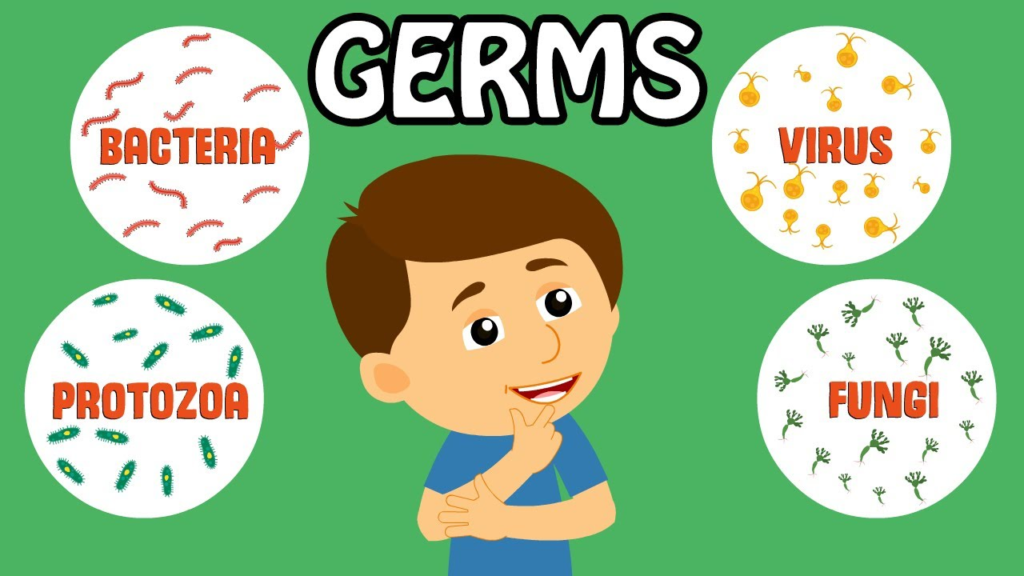Infectious Diseases
infectious diseases by Delta publications
Key Notes:
Definition:
- Infectious diseases are illnesses caused by germs, such as bacteria, viruses, fungi, or parasites, that can spread from one person to another.
Types of Germs:

- Bacteria: Tiny organisms that can live in or on the body. Some cause diseases like strep throat or ear infections.
- Viruses: Even smaller than bacteria, viruses cause illnesses like the flu or common cold.
- Fungi: Can cause infections like athlete’s foot or ringworm.
- Parasites: Organisms that live on or inside other organisms, causing diseases like malaria.
How Diseases Spread:
- Direct Contact: Touching someone who is infected or sharing personal items.

- Indirect Contact: Touching surfaces or objects that have germs on them.
- Airborne: Breathing in germs from the air, like when someone sneezes or coughs.
- Insect Bites: Some diseases spread through bites from insects like mosquitoes.
Symptoms:
- Common symptoms include fever, cough, sore throat, rash, and feeling tired or weak.
Prevention:
- Hand Washing: Regularly washing hands with soap and water helps kill germs.

- Vaccines: Getting vaccinated can prevent certain infectious diseases.

- Healthy Habits: Eating well, exercising, and getting enough sleep help keep the immune system strong.

Treatment:
- Medicine: Doctors may prescribe antibiotics for bacterial infections or other medicines for different types of germs.

- Rest and Hydration: Resting and drinking fluids helps the body fight off illness.

Importance of Hygiene:
- Keeping yourself and your surroundings clean helps prevent the spread of germs.
When to See a Doctor:
- If you have symptoms that are severe or do not go away, it’s important to visit a healthcare provider.
Let’s practice!

